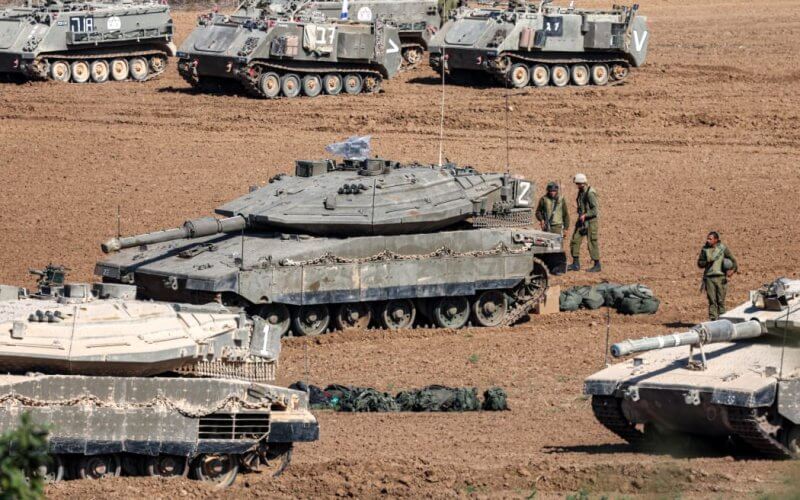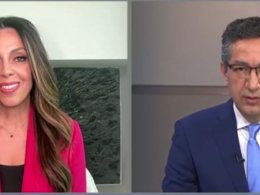Officials representing the Islamic Republic of Iran requested the Biden administration broker a ceasefire in the Israel-Hamas conflict in indirect negotiations at the same time the United States was urged the regime to curb the actions of its regional proxies, according to new reports.
According to the Financial Times, officials from both governments met privately in January in Oman. They included the administration's Middle East Czar Brett McGurk, special envoy on Iran Abram Paley, and Iran Deputy Foreign Minister Ali Bagheri Kani.
American officials urged their Iran counterparts to control the assaults carried out by the Yemen Houthi militants, who are supported by Iran, in the Red Sea. Additionally, they conveyed apprehensions regarding Iran's nuclear program. The officials informed The New York Times that they demanded an end to the attacks by Iran-backed terrorist factions in Iraq and Syria against military forces.
Iran's Deputy Foreign Minister Kani requested that the U.S. broker a ceasefire in Gaza. However, it was unclear whether this request aimed at a temporary halt to the conflict or a permanent resolution between Israel and Hamas.
"With Hamas facing defeat and Hezbollah facing a likely Israeli offensive into southern Lebanon, Iran is pulling strings to protect these groups—including in this case through intermediaries in Oman," said Jerry Canto, an analyst at United Against Nuclear Iran (UANI). "Although internal and local circumstances also influence these groups' decisions, Tehran prepared them for decades and then ordered them to escalate against Israel and the U.S.”
It is appropriate to defend against and degrade these groups' capabilities. However, the U.S. must calculate how to scale up and reinforce economic and diplomatic strategies to isolate the regime, strike more valuable assets belonging to the IRGC, and develop a credible threat of military force.
Two Iran regime officials told The New York Times that the Islamic Republic persists in disavowing direct control over the actions of its proxies, specifically the Houthis. However, they indicated that Iran could exert influence over these groups to halt attacks entirely once a ceasefire was reached.
Despite failing to reach an agreement, officials from the U.S. and Iran stated that they have maintained communication through Oman, discussing matters concerning proxies and the possibility of a ceasefire.
A senior U.S. official, who preferred to remain anonymous, informed The New York Times that the administration decided to engage in the discussions to demonstrate its ongoing commitment to diplomatic dialogue amidst escalating regional tensions. American officials indicated that Iran initiated the meeting, with Oman strongly encouraging the U.S. to participate by sending representatives.
A discussion planned for February was postponed because McGurk shifted his attention to securing a temporary truce and negotiating the release of hostages between Israel and Hamas. Despite a temporary ceasefire in late November, during which 105 of the 253 hostages from the October 7 massacre were freed, reaching a second deal with Hamas has proven difficult, with over three months passing without success.
The White House views indirect diplomatic communication with Tehran as a means of addressing Iran's various threats. According to a source familiar with the discussions who spoke to The Financial Times, this method enables the U.S. to communicate with Iran on ways to prevent a broader conflict in the region.
"Iran has repeatedly said it only has a form of spiritual influence [over the rebels]. They can't dictate to the Houthis, but they can negotiate and talk," an Iran official told The Financial Times. Following October 7, the Iran-backed Houthis attacked American and international commercial ships in support of Hamas. Despite targeted military U.S. and U.K. strikes, the Houthis continue to launch attacks in the Red Sea, receiving military weaponry from Iran's Islamic Revolutionary Guards Corps (IRGC).
"It is appropriate to defend against and degrade these groups' capabilities. However, the U.S. must calculate how to scale up and reinforce economic and diplomatic strategies to isolate the regime, strike more valuable assets belonging to the IRGC, and develop the credible threat of military force," Canto told The Foreign Desk.
In Tehran, Iranian Supreme Leader Ayatollah Ali Khamenei has called on Muslim nations to support Hamas and their attacks against Israel. In Lebanon, the Iranian-backed Shiite Lebanese terrorist group Hezbollah has vowed to continue to launch sporadic attacks against Israel while providing military weaponry and training to the Houthis.
Related Story: U.S. Held Private Talks with Iran’s Regime Over Nuclear Program, Curbing Houthi Attacks










